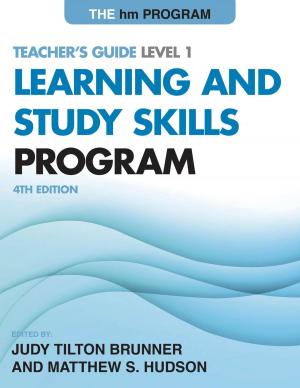Ready for Battle
Technological Intelligence on the Battlefield
Nonfiction, Science & Nature, Technology, Military Science, History, Military, Strategy| Author: | Azriel Lorber | ISBN: | 9781442239319 |
| Publisher: | Rowman & Littlefield Publishers | Publication: | October 30, 2014 |
| Imprint: | Rowman & Littlefield Publishers | Language: | English |
| Author: | Azriel Lorber |
| ISBN: | 9781442239319 |
| Publisher: | Rowman & Littlefield Publishers |
| Publication: | October 30, 2014 |
| Imprint: | Rowman & Littlefield Publishers |
| Language: | English |
Technology and its proper use constitute key components in the strength of any armed forces. However, battlefield technologies constantly evolve in the quest for competitive advantage, with the rate at which new concepts and devices appear steadily increasing. In the world of technological intelligence, militaries worldwide not only seek to advance their technologies but to gather information about the latest technological and scientific developments of present and future adversaries, evaluate their possible impacts, and prevent as much as possible, the advantages gained by technological surprise—that sudden appearance of novel weapon systems that can tilt the success of an operation, battle, or even war.
While ample documentation circulates on operational intelligence—defined as information about an enemy's order of battle and intentions—and “operational surprise,” technological intelligence (and consequently technological surprise) receives far less attention than today’s military reality merits.
In Ready for Battle: Technological Intelligence on the Battlefield, Azriel Lorber rectifies this slant towards operational intelligence, engaging through historical example and policy prescription technology's role in modern warfare, and the dangers presented by technological inferiority on the one hand, and technological surprise on the other. Throughout, he offers examples of well-kept technological secrets that turned the tides of battle—as well as less well-hidden efforts that failed in their effect.
Ready for Battle analyzes the challenges presented and possible methods for addressing questions of technological surprise, drawing on historical examples of failure and success and offering insights into the intricacies of technological deception. This work will interest military historians and officers, security analysts, and defense industry professionals.
Technology and its proper use constitute key components in the strength of any armed forces. However, battlefield technologies constantly evolve in the quest for competitive advantage, with the rate at which new concepts and devices appear steadily increasing. In the world of technological intelligence, militaries worldwide not only seek to advance their technologies but to gather information about the latest technological and scientific developments of present and future adversaries, evaluate their possible impacts, and prevent as much as possible, the advantages gained by technological surprise—that sudden appearance of novel weapon systems that can tilt the success of an operation, battle, or even war.
While ample documentation circulates on operational intelligence—defined as information about an enemy's order of battle and intentions—and “operational surprise,” technological intelligence (and consequently technological surprise) receives far less attention than today’s military reality merits.
In Ready for Battle: Technological Intelligence on the Battlefield, Azriel Lorber rectifies this slant towards operational intelligence, engaging through historical example and policy prescription technology's role in modern warfare, and the dangers presented by technological inferiority on the one hand, and technological surprise on the other. Throughout, he offers examples of well-kept technological secrets that turned the tides of battle—as well as less well-hidden efforts that failed in their effect.
Ready for Battle analyzes the challenges presented and possible methods for addressing questions of technological surprise, drawing on historical examples of failure and success and offering insights into the intricacies of technological deception. This work will interest military historians and officers, security analysts, and defense industry professionals.















